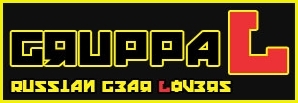This morning I stumbled about something interesting on youtube. As
you might already have guessed by the title, it is a suppressed mortar.
So, how is that possible? The answer lies within the used rounds mainly.
Have you heard of the NRS-2 (НРС-2) shooting knife or the PSS (ПСС)
pistol? Both are suppressed without having a suppressor. They are even
quieter then most guns with a suppressor. Developed in the 1980s, they
work the same way as the mortar does.


The cartridges contain a cylinder, which
 complete contains the gases from the explosion inside. The cylinder expands and pushes the projectile forward.
complete contains the gases from the explosion inside. The cylinder expands and pushes the projectile forward.You can’t hear anything, but the noise caused by the friction.
The mortar rounds work exactly the same way. A downside of this design is, that the muzzle velocity is quite low.

 The 2Б25 mortar is chambered in 82mm and was developed by Burevestinik (Буревестник)
in 2011. Due to the low muzzle velocity it has a range of 1200 meters
only. However it was designed for special units/operations anyway, so
targets have to be in visual range usually.
The 2Б25 mortar is chambered in 82mm and was developed by Burevestinik (Буревестник)
in 2011. Due to the low muzzle velocity it has a range of 1200 meters
only. However it was designed for special units/operations anyway, so
targets have to be in visual range usually.As for now there is only one HE round (3ВО35Е) available. I assume a thermobaric will follow in the future since Russians have a lot of experience in that field.
The mortar weights 15kg an can be carried by a single person. Usually a second one carries 4 rounds.
The advantages are obvious: No fire/flash or smoke which could give
away the position. The noise is equivalent to suppressed AK and thus it
can be fired without hearing protection.
There has always been a safety concern on the PSS pistole because the spend cartridges are still under pressure and could possibly explode. On a mortar this is clearly no problem anymore.
There has always been a safety concern on the PSS pistole because the spend cartridges are still under pressure and could possibly explode. On a mortar this is clearly no problem anymore.





Keine Kommentare:
Kommentar veröffentlichen